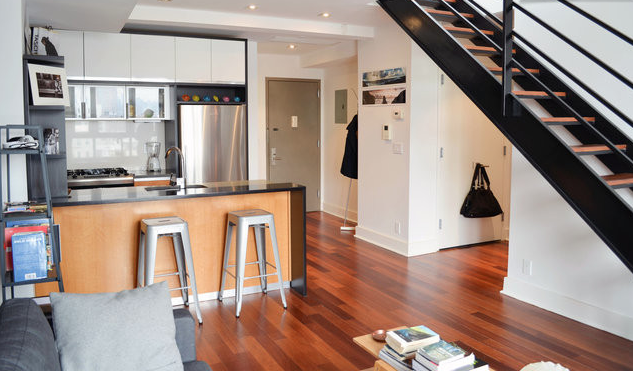My roommates and I are going to study abroad. What happens to our apartment?

Subletting might be a good option if you want to keep your apartment when you're studying abroad—but it will require some detailed legwork.
iStock
My two roommates and I are college students who will be studying abroad next spring. We are all on the lease and want to keep our apartment. What options do we have, and how soon should we alert our landlord? What happens to our stuff?
First and foremost, you need to know that you cannot just pack up and go—or not pay rent for the time you won’t be using your apartment. The lease the three of you signed is a legally binding contract that cannot easily be broken. However, there are a few legal ways to go about breaking your lease, like finding another tenant to take it over or asking to be released from it early.
Subletting your NYC apartment might be your best bet if A) you want to keep your apartment, and B) there will still be time on your lease when you come back stateside. The law allows you to sublet for at least 30 days and up to two years—even if your lease states otherwise—if you’re in a market-rate rental building with at least four units.
“If there are less than four units, the lease language governs,” says Sam Himmelstein, an attorney (and Brick Underground sponsor) who represents residential and commercial tenants, tenant associations, and co-op shareholders. “Almost every lease prohibits subletting without the landlord’s consent. The tenant can still ask permission, but the landlord can refuse for any or no reason.”
According to the law, the landlord cannot “unreasonably withhold consent” if you don’t live in a co-op, condo, or government-regulated housing, which all have certain restrictions regarding subletting.
However, “you need have to have a valid reason for subletting, and certainly studying abroad is right up there,” Himmelstein says. Needing to care for a sick relative, having a temporary job assignment out of state, or military service qualifies as other valid reasons, whereas taking a permanent job or moving into a home you bought or rented elsewhere are not.
Requesting a sublet with your landlord
If you think subletting might work for you and your roommates, you will need to make a formal request with your landlord. If you’re leaving in, say, January for a spring semester abroad, Himmelstein recommends starting the process by mid-November or at least 45 days before the sublet should begin since the landlord has 30 days to respond.
In your request, which must be sent via certified mail with a return receipt requested, you’ll have to state your reason for subletting, that you intend to return to the apartment, the start and end dates for the sublease—and provide subtenants “who are real people,” Himmelstein says. “You have to give their home and business address, and you have to attach to the sublet request a copy of your lease with the landlord and a copy of the proposed sublease with the subtenants.”
(Yes, it is your responsibility to find qualified tenants to take your place because if they don’t pay the rent, you’ll be on the hook.)
Within 10 days of mailing the request, your landlord can ask for more information, such as additional details on the potential subtenants’ finances or rental history or your reasons for subletting. Once you provide those answers, that’s when your landlord’s 30 days to approve the sublet begins, so you can see the importance of starting the process as early as possible.
While you cannot move the subtenant in before the landlord consents, if he or she doesn’t respond within that 30-day period, the law deems that as consent. Because you were required to send your request letter certified mail with a return receipt, that can serve as your partial or full proof should this situation arise.
Why sublets get denied
Just as you and your roommates had to qualify to rent your apartment by making at least 40 times your monthly rent (or having a guarantor that makes at least 80 times), which most NYC landlords require, so does a subtenant.
“If they have bad credit, a history of a bankruptcy, or their prior landlords say they were deadbeats, that would be valid reasons to turn it down,” Himmelstein says, adding that finances are the main reason sublets get denied.
If you want to stay abroad longer than planned
Once abroad, it may be hard to resist the urge to traipse around Europe after the semester ends. If your travel time falls within the sublet terms laid out in your letter, great. But if not, you may have to do a whole new sublet request, though “you could write to the landlord and ask them to kindly extend the sublet a few months,” Himmelstein says.
It’d might be hard for them to turn down such an extension since the subtenants are already approved, living in their property and (hopefully) being an upstanding subletter who’s paying the rent on time.
But when your original lease ends could throw a wrench into your plans as “you can’t sublet for beyond the termination of the lease because you can only sublet what you have,” Himmelstein says.
What to do with your stuff
Figuring out what to do with your furniture and valuables that aren’t be going abroad with you can be tricky. One option is to put some (or all) items into storage, but that will come with some fees that a student (or their family) might not want to shell out, like renting a storage unit and paying for movers.
Another alternative would be to keep your stuff in your apartment, which means a higher rent may be in order, but this scenario may not be ideal for you. These tips for safely renting your furnished apartment might come in handy if you do decide to go this route.
Subletting and renters insurance
If you wisely chose to get renters insurance when you moved into the apartment—and Brick sure hopes you did—there’s some bad news.
“Subletting a rental when you are moving out of the country means your renters insurance would be voided,” says Jeff Schneider, president of Gotham Brokerage, an apartment insurance broker in NYC (and Brick sponsor).
If you were studying else in the U.S., you could take out a new local policy and extend the liability coverage back to your NYC abode, “but overseas insurers will not cover NYC,” he adds.
Your best bet, Schneider says, is to have your subtenant take out coverage, “and, if allowed, add the tenant as an additional insured.” You could also pay up to $500 to add “landlord” liability coverage, he adds, which could protect you if there’s damage or injury.
You Might Also Like



























